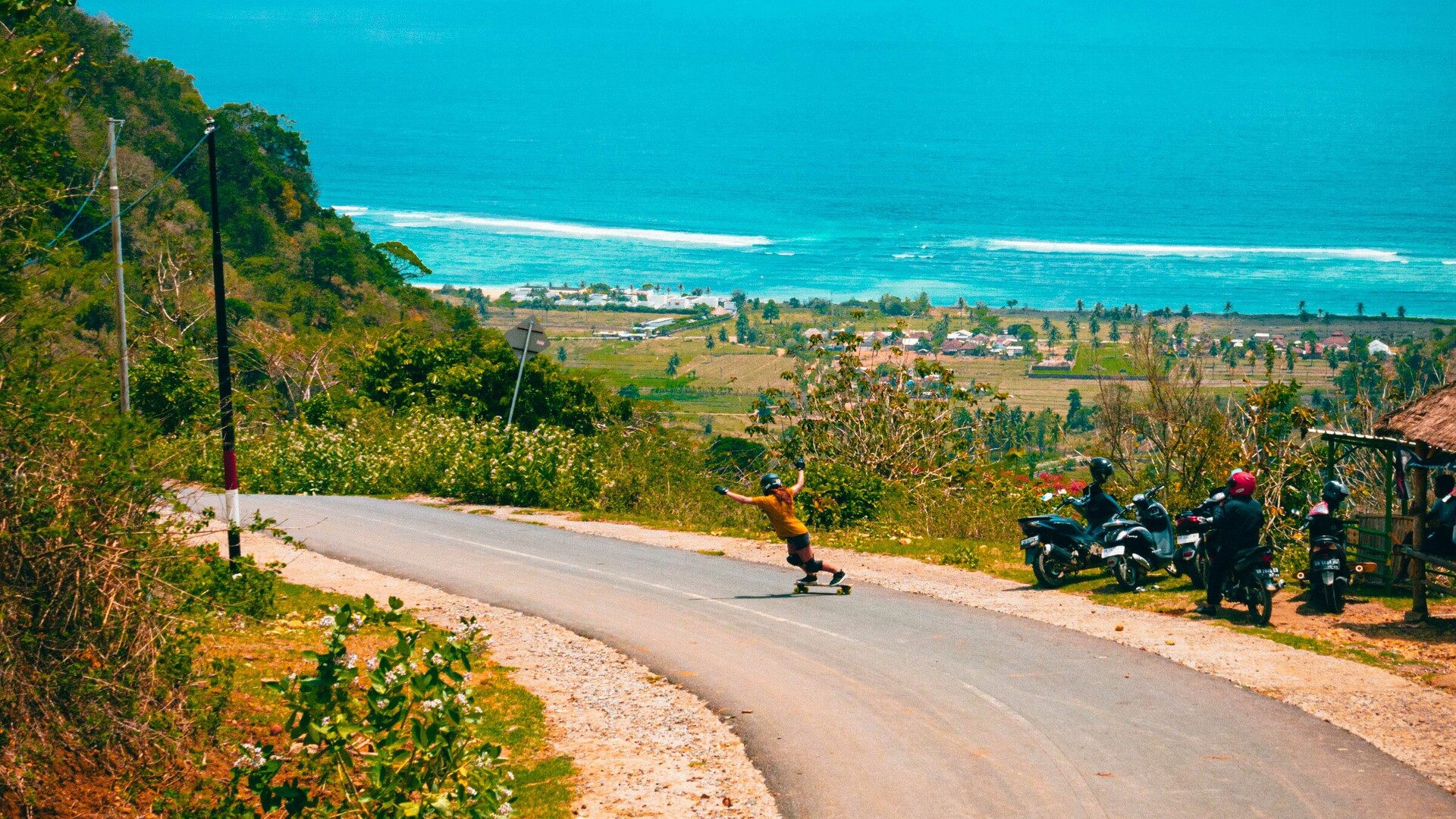
Anna Pixner
The film ANNA is part of the European Outdoor Film Tour 2024
Anna Pixner lives for smooth asphalt and sweeping curves.
After a severe accident, she's back with a new approach to her sport.
In conversation with Anna
About downhill longboarding, her experiences, and the risks involved in this sport
How did you get into longboarding?
ANNA PIXNER I just ordered a longboard and started practicing on a bike path behind my house. I'd skate on my own and listen to music. It really relaxed me. I’ve never felt comfortable in big groups. Going to school was awful; it was always a huge source of stress for me. But sports were my outlet, and I gravitated toward solo activities.
A lot of skaters start in a skatepark. Why didn’t you?
I’ve always hated people watching me when I’m learning something new. I never liked being the center of attention, and the skatepark felt exactly like that. Back then, about ten years ago in Innsbruck, there weren’t many female skaters, and the skill level was pretty high. I’d watch them and think, “Wow, they’re all so good at this already.” And when you show up there as the only girl, of course all the guys are going to look at you. Now I don’t care, but at 15, I found that terrifying.
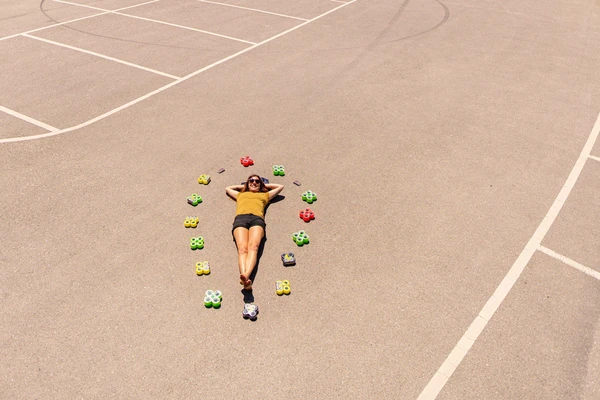
You’ve longboarded all over the world. How would you describe the skate community?
It feels like a big international family. There aren’t that many people who do the sport, but I’ve experienced so many moments while traveling where I met people in different countries who treated me like family. They’d invite me to dinner and offer me a place to sleep on their couch. It’s kind of crazy... but then you find yourself doing the same thing when someone visits your hometown.
You now teach kids and teens how to skate. How did that start, and what’s your goal with it?
While traveling, I noticed that many young people have far fewer opportunities than those who grow up in Austria or Germany. Here, you have every chance in the world to try all kinds of sports. In other countries, young people often have nothing—no money to buy gear and no sports facilities. Kids in such frustrating situations can easily fall into bad habits.
For me, skating is a way to channel destructive energy into something positive. And it doesn’t have to be downhill skating. I often just teach them how to push and brake on flat ground. Even that gives them a sense of freedom. It’s something they can get creative with—on four wheels.
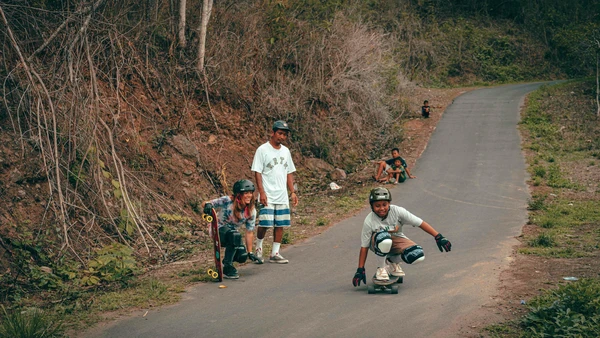
Fun, speed, and risk are inherently part of downhill longboarding. How can the sport be practiced as safely as possible?
With downhill longboarding, I think it's better to improve slowly and not build up too much confidence right at the start. Once you've learned how to glide and how to brake, it feels very controlled—maybe like riding a bike. So, you might think, “Okay, I’m ready to go fast!”
But what you don’t realize is that there are many other factors involved, like an object laying on the road or a car coming at you. You only think about these things after you've been doing the sport for a while and have had more experience. That's why it takes a few years before you can truly ride safely and fast.
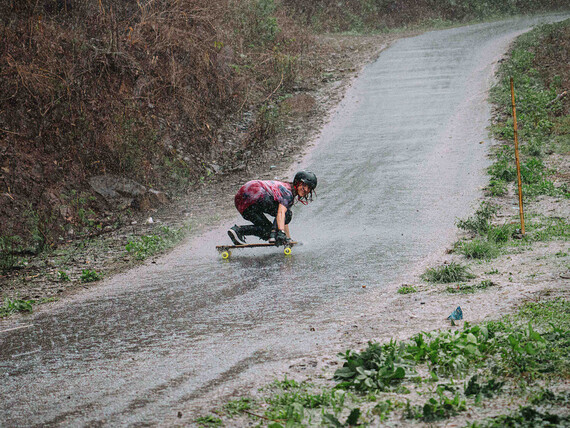
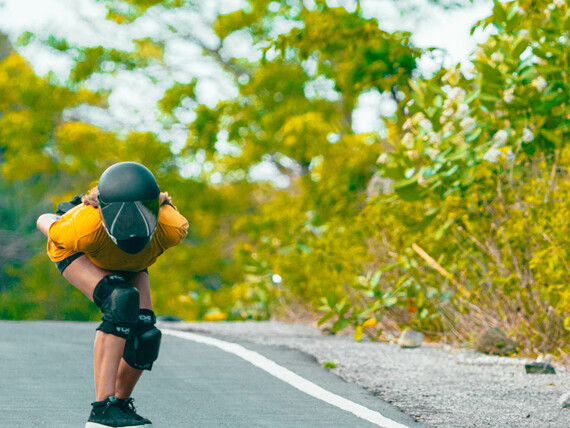
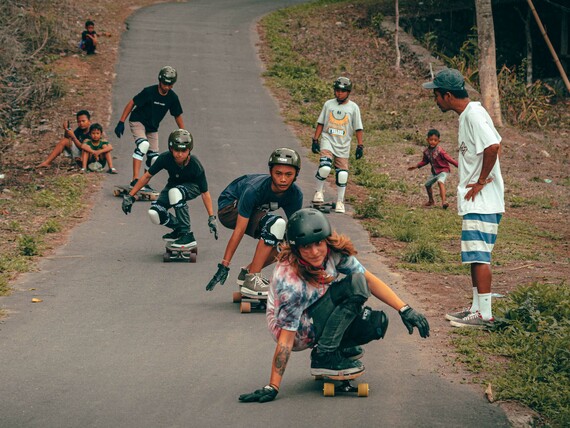
In official downhill longboarding competitions, roads are closed off. Otherwise, it means staying alert while riding in regular traffic and using radios to communicate.
You had a serious accident in 2018 and experienced what it's like to overestimate your own abilities, even for just a moment. How did you feel after that experience?
I was in quite a depressive phase for a while. When you are suddenly forced to just lay around and you’re not getting all the endorphins released through exercise, it's a total shock for the body.
How did you deal with this new reality?
It really helped me to write down my feelings about the accident itself and about the whole healing process. I was also reading a lot about sports psychology at the time, including theories about why I felt the way I did, and it was good to have an explanation and to be able to understand it all.
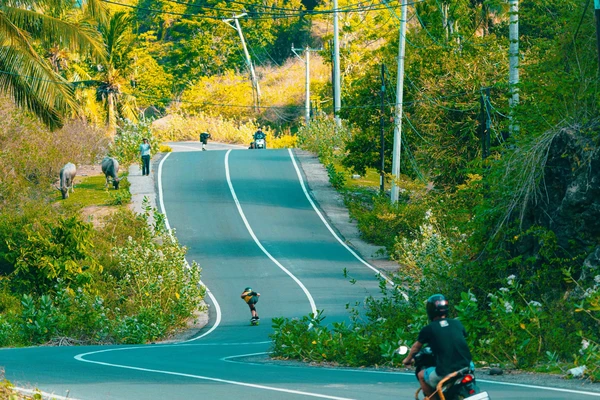
What was it like to get back on the board?
It was quite difficult, especially the first year. I was totally motivated and also really happy that I could move again, but I started having panic attacks when I even just stood on the board or in certain situations, like, when there were crash barriers. I had this feeling like I couldn't breathe.
In the end, I went to therapy. I had to process the trauma first. When you've had an accident like that, where you could have died, you ask yourself, “Why am I even doing this ... and voluntarily?”
What did you learn from this experience?
I definitely learned that I have to do this for myself. That was a really helpful insight. In other words, I don't have to set extreme goals for myself; it's about having fun, and the more fun I have, the better I ride.
You simply have to rise above a lot of things to minimize the risk.
Are you less willing to take risks now than you used to be?
Since the accident, I have the impression that longboarding feels less risky to me because I now have a better sense of whether something is a big risk or actually crazy. I think the longer you do it, the better you can listen to the warning signals and know when to just say, “I'm not going to do that.”
In the meantime, I don't care if it looks stupid if I go down really slowly. It's usually external factors that make sport riskier. It's either the pressure of a race, when you feel like you have to push yourself to the limit, or when you're filming and think you have to prove something.
You simply have to rise above a lot of things to minimize the risk. Unfortunately, I learned that the hard way.
Thanks so much for the interview!
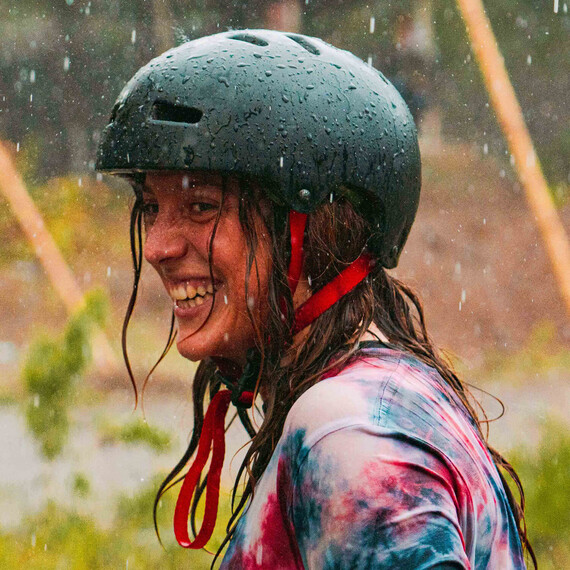
About Anna
is from Innsbruck and started longboarding at the age of 15. Instead of practicing in the skatepark, she preferred to ride on the bike path behind her house, gradually taking on longer and longer downhill runs—not just in Austria, but around the world. She aims to introduce skateboarding to children, especially girls, and when the streets get too hot, she enjoys going surfing as well.
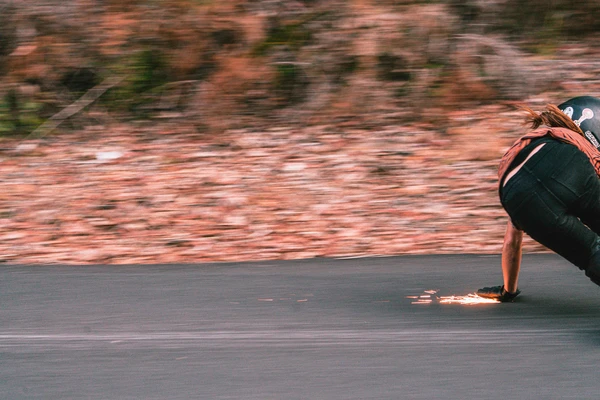
Got curious?
Here’s a sneak peek into her film ANNA!
Sneak peek: ANNA
Want to see Anna on the big screen?
Get your tickets for a show in your city!